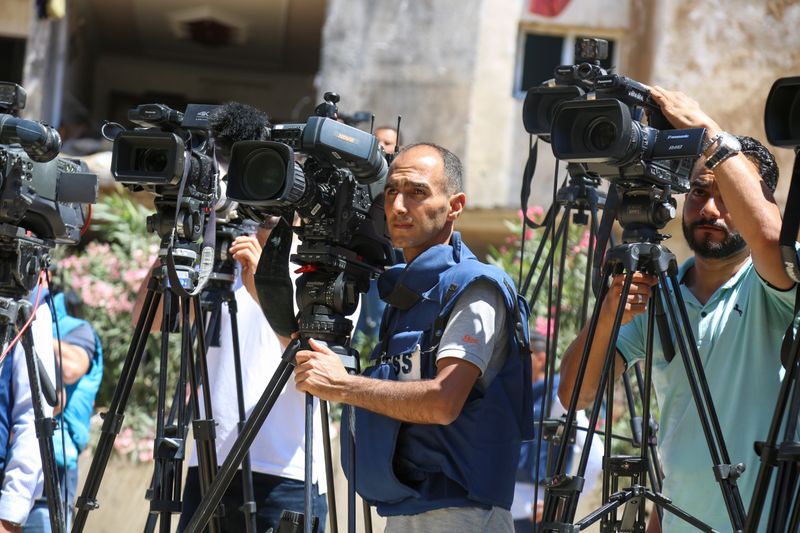Table of Contents
Israel Still Blocking Aid to Civilians in Gaza: Collective Punishment of Palestinians is a War Crime
The Situation in Gaza
The Israeli government is deliberately exacerbating the suffering of civilians in Gaza by refusing to restore the flow of water and electricity and by blocking fuel shipments. This deliberate obstruction of relief supplies is not only morally reprehensible but also constitutes a war crime. Israel‘s actions amount to collective punishment of all civilians in Gaza for the actions of armed groups, which is forbidden under international law.
On October 7, Hamas-led fighters conducted a brutal civilian massacre in southern Israel, committing unspeakable war crimes against Israeli civilians. These actions cannot be justified, and those responsible must be held accountable. However, it is crucial to recognize that the crimes committed by Palestinian fighters do not justify Israeli authorities committing war crimes against Palestinian civilians in retaliation.
The Legal Obligations of Israel
Israel, as the occupying power in Gaza, is obligated under the Geneva Conventions to ensure that civilians have access to basic goods. Additionally, as a party to the armed conflict, Israel must facilitate the delivery of humanitarian aid to Gaza. In previous hostilities, Israel has maintained a supply of electricity and water to Gaza and found ways to open its truck crossings. However, in the current situation, Israel has failed to meet its legal obligations. Prime Minister Benjamin Netanyahu even explicitly stated that humanitarian assistance in the form of food and medicines would not be allowed into Gaza.
While the laws of war permit a warring party to take steps to ensure that shipments do not include weapons, deliberately impeding relief supplies is prohibited. The Israeli authorities’ refusal to allow fuel, despite its desperate need for hospitals, water and sewage pumping, and aid delivery, is a clear violation of international law.
A Call for Respect of International Humanitarian Law
The violence in Israel-Palestine has deep-rooted causes and has resulted in tragic consequences for civilians on both sides. It is essential for all parties to respect international humanitarian law and refrain from unlawful attacks on civilians. Hamas and other Palestinian armed groups should immediately release all civilian hostages they hold. Israel, on the other hand, should restore the flow of electricity and water to Gaza, allow monitored fuel into the territory via Rafah crossing, and take the necessary steps to open its own crossings for humanitarian aid.
Conclusion
The situation in Gaza highlights the ongoing suffering of Palestinian civilians and the need for accountability and adherence to international humanitarian law. It is crucial for the international community to condemn the obstruction of aid to Gaza and exert pressure on Israeli authorities to fulfill their legal obligations. By doing so, we can help alleviate the humanitarian crisis in Gaza and prevent further violations of human rights.

<< photo by Musa Zanoun >>
The image is for illustrative purposes only and does not depict the actual situation.
You might want to read !
- Tunisia’s Proposed NGO Law: A Threat to Civil Society and Democracy
- Protesters Disrupt Fossil Fuel Executives’ Golf Game, Demanding an End to Playing with Lives
- Justice Denied: The Tragic Case of an Indigenous Teen’s Death in an Australian Adult Prison
- EU’s Inaction on Ethiopia’s Human Rights Crisis Fails Victims
- Achieving Accountability: Demanding Justice for Army Killings in Colombia
- The Criminalization of Environmental Defenders in Mexico: Suppressing the Right to Protest
- Humanitarian Crisis Unfolds: Thousands Displaced in Dire Conditions in Northeast Syria
- Escalating Challenges: The Uncertain Fate of the Rohingya in Bangladesh and Myanmar
- The Urgent Imperative: UN General Assembly Must Support Cross-Border Humanitarian Aid Mechanism for North-West Syria
- Amidst the Renewed Conflict, Israel Must Act Now to Provide Essential Services to Gaza